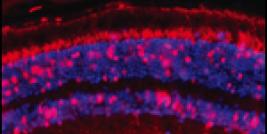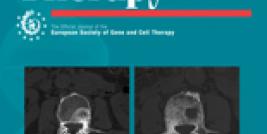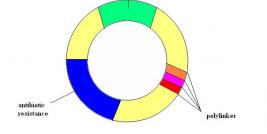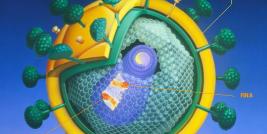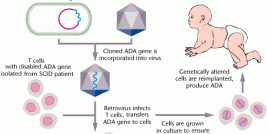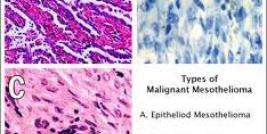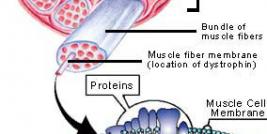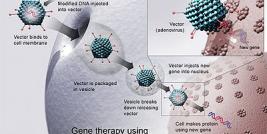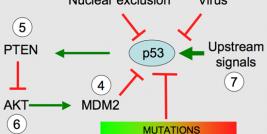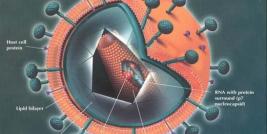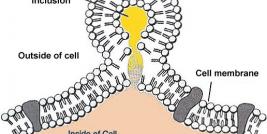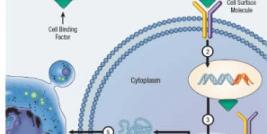29 April 2010 – Sydney, Australia, Auckland, New Zealand– Living Cell Technologies Limited (ASX: LCT; OTCQX: LVCLY) announced today the quarterly cash flow report for the quarter ended 31 March 2010. The Appendix 4C is attached. The cash balance at the end of the quarter was $4,090,696 compared to $5,494,841 at 31 December 2009. This decrease reflects the development of the lead product DIABECELL®.
Net operating cash outflows were $1,257,133 compared to $1,676,991 last quarter. Expenditure included $891,261 on research and development ($677,827 last quarter) for the supply of DIABECELL® for the clinical trial in New Zealand. Cash received from Government grants was $124,107 ($0 last quarter), showing the first claims under the NZD4m matching grant to scale up production of DIABECELL® announced on 12 February. Receipts from customers were $222,613 ($163 last quarter) including the first instalments of the Centocor Research & Development Inc. research collaboration and option to licence agreements.
Capital expenditure was $112,639 in the quarter, compared to $25,221 last quarter, reflecting purchase of equipment to reduce risk and scale up production.
During the quarter a further two patients in the New Zealand clinical trial received implants of DIABECELL®, the company’s encapsulated insulin producing cells for type 1 diabetes. On 30 March the New Zealand Data Safety and Monitoring Board approved progressing to the next stage of the Phase II trial with a higher dose. The first patient has dropped his daily insulin dose by 25% while maintaining his usual blood glucose levels and eliminated life-threatening episodes of hypoglycaemic unawareness, a serious complication without warning symptoms which can lead to accidents and coma. The Phase I/IIa clinical trial in Russia has continued to show positive results and confirmed the safety of multiple implants of DIABECELL®.
About Living Cell Technologies - www.lctglobal.com
Living Cell Technologies (LCT) is developing cell-based products to treat life threatening human diseases. LCT’s technology enables healthy living cells to be injected into patients to replace or repair damaged tissue without requiring the use of immunosuppressant drugs to prevent rejection. LCT also offers medical-grade porcine-derived products for the repair and replacement of damaged tissues, as well as for research and other purposes.
The Company owns a bio-certified pig herd that is a source of cells for treating diabetes and neurological disorders. For patients with type 1 diabetes, the Company implants microencapsulated islet cells so that near-normal blood glucose levels may be achieved without the need for administration of insulin or at significantly reduced levels. For the treatment of Parkinson’s disease and other neurological disorders, the company transplants microencapsulated choroid plexus cells that deliver beneficial proteins and neurotrophic factors to the brain.
LCT Disclaimer
This document contains certain forward-looking statements, relating to LCT’s business, which can be identified by the use of forward-looking terminology such as “promising,” “plans,” “anticipated,” “will”, “project”, “believe”, “forecast”, “expected”, “estimated”, “targeting”, “aiming”, “set to,” “potential,” “seeking to,” “goal,” “could provide,” “intends,” “is being developed,” “could be,” “on track,” or similar expressions, or by express or implied discussions regarding potential filings or marketing approvals, or potential future sales of product candidates. Such forward-looking statements involve known and unknown risks, uncertainties and other factors that may cause actual results to be materially different from any future results, performance or achievements expressed or implied by such statements. There can be no assurance that any existing or future regulatory filings will satisfy the FDA’s and other health authorities’ requirements regarding any one or more product candidates nor can there be any assurance that such product candidates will be approved by any health authorities for sale in any market or that they will reach any particular level of sales. In particular, management’s expectations regarding the approval and commercialization of the product candidates could be affected by, among other things, unexpected clinical trial results, including additional analysis of existing clinical data, and new clinical data; unexpected regulatory actions or delays, or government regulation generally; our ability to obtain or maintain patent or other proprietary intellectual property protection; competition in general; government, industry, and general public pricing pressures; and additional factors that involve significant risks and uncertainties about our products, product candidates, financial results and business prospects. Should one or more of these risks or uncertainties materialize, or should underlying assumptions prove incorrect, actual results may vary materially from those described herein as anticipated, believed, estimated or expected. LCT is providing this information and does not assume any obligation to update any forward-looking statements contained in this document as a result of new information, future events or developments or otherwise.










